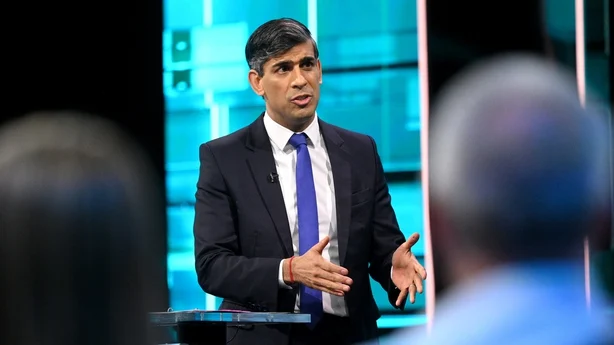Recent analysis paints a grim picture for the Conservative Party in the United Kingdom, with significant demographic shifts suggesting that the Tories could face severe challenges in the next general election.
According to polling company Focaldata, the age at which the Conservatives became the most popular party has shifted dramatically, now standing at 64, compared to 42 in 2019.
This shift is primarily due to the aging and eventual passing of their core voter base.
In the last five years alone, approximately one in every ten voters who supported the Conservatives under Boris Johnson’s leadership died, amounting to around 1.3 million individuals.
This trend, according to an analysis by The Times using population estimates from the Office for National Statistics, is expected to accelerate during the current parliamentary term.
The data suggests that by 2029, an estimated 1.2 million Tory supporters will have passed away, accounting for 17 percent of the party’s vote share.
Demographic Shifts Favor Labour
In contrast, the Labour Party stands to benefit from these demographic changes. It is projected that only 500,000 Labour voters — equating to 5.3 percent of their current support — will die within the same period.
Additionally, Labour could see an influx of nearly 800,000 new votes as younger individuals, who are statistically more likely to support the party, become eligible to vote.
This could result in a net gain of 300,000 votes for Labour and a net loss of a million votes for the Conservatives.
If these votes were translated into parliamentary seats, the Conservatives could lose 34 seats while Labour could gain 29.
The Conservative Dilemma
The typical Conservative voter today is aged 62, supported Brexit, and has consistently voted Conservative in previous elections.
Polling data from More in Common indicates that Conservative voters are slightly more likely to be white and financially comfortable.
However, this reliance on an aging demographic poses a significant risk for the party’s future.
During the last general election campaign, former Prime Minister Rishi Sunak and the Conservatives faced criticism for neglecting younger voters and relying heavily on their traditional “grey vote” base.

The party’s manifesto prominently featured policies aimed at pensioners, such as the “triple lock plus” pledge to boost incomes, but offered little to attract younger demographics.
Sam Bidwell, director of the Next Generation Centre at the Adam Smith Institute, described the Conservatives’ reliance on older voters as “an existential challenge” for the party. He warned, “If it continues along its current trajectory, the party is at risk of literally dying out.”
Voter Turnout and Demographics
The 2024 general election saw the lowest voter turnout since 2001, with only 59.9 percent of eligible voters participating.
A report from the Institute for Public Policy Research (IPPR) highlighted that constituencies with a higher proportion of older, wealthier, and white residents had significantly higher turnout rates compared to those with fewer individuals from these demographics.
The IPPR found that turnout was 11 percent higher in constituencies with the highest proportion of over-64s compared to those with the lowest.
Key Issues Damaging Tory Credibility
Aside from the voter demographics, a deeper look into the Conservatives’ dwindling support reveals multiple factors at play.
Brexit, once a crowning achievement for the party, has led to economic difficulties, including rising living costs and housing prices, with increasing numbers favoring rejoining the EU.
The party’s failure to curb illegal immigration despite promises, particularly the unimplemented Rwanda Plan, had frustrated voters.
Boris Johnson’s mishandling of the COVID-19 pandemic, marked by scandals and delayed lockdowns, further eroded public trust.
Also, the National Health Service’s struggles, with lengthy wait times prompting patients to seek treatment abroad, have been seen as a broken Conservative promise.
Economic mismanagement, perceived favoritism toward the wealthy, and inadequate measures to mitigate inflation’s impact on ordinary citizens have compounded voter dissatisfaction.
As such, these cumulative issues have severely damaged the Conservative Party’s reputation, leading to significant electoral losses and a deep-seated lack of public confidence.
READ ALSO: Over 37% Under Subscription of T-bills Signals Investor Concerns Over Gov’t Fiscal Health- Analyst







